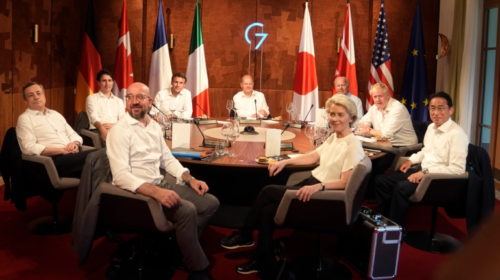Leaders of Group of Seven (G7) nations have discussed plans to cap the price of Russian oil in order to put the squeeze on Moscow, which is benefiting from soaring energy prices, and cut off its means of financing the invasion of Ukraine.
The United States has suggested a price cap decided by consuming countries, a proposal that was discussed on Sunday by the G7 leaders at a summit in the Bavarian Alps.
Western countries rallied around Kyiv when Russia invaded Ukraine in February, but more than four months into the war, that unity is being tested as soaring inflation and energy shortages rebound on their own citizens.
Chided by Ukraine for not going far enough to punish Russia, G7 leaders were having “really constructive” talks on a possible price cap on Russian oil, a German government source was quoted as saying by the Reuters news agency.
“We are on a good path to reach an agreement,” the official said.
A French presidency official said Paris would push for a price cap on oil and gas and was open to discussing the US proposal.
However, he said the G7 needed to work towards getting a maximum oil price and this needed the buy-in of oil producers in the Organization of Petroleum Exporting Countries and its allies in a group called OPEC+, which includes Russia.
“We need to have discussions with OPEC+ and producing countries to achieve this,” the official said.
The European Union, which plans to ban imports of most Russian oil from the end of the year, has reservations about a US push for a broad oil price cap or “price exception” to restrict Moscow’s energy revenue.
A price exception could work through a mechanism to restrict or ban insurance or financing for Russian oil shipments above a certain amount.
It could prevent spillover effects to low-income countries that are struggling with high food and energy costs.
European Council President Charles Michel also said G7 leaders would discuss a technical mechanism that had the effect of an oil price cap through services related to oil and export insurance.





